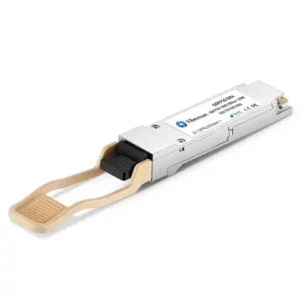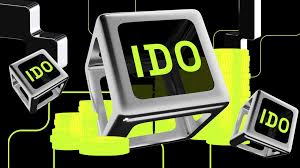The global Hydrolyzed Collagen Market is witnessing notable expansion, driven by growing consumer demand for health-enhancing supplements, functional food ingredients, and clean-label beauty products. Estimated to grow from US$ 1.32 billion in 2024 to US$ 1.91 billion by 2031, the market is expected to register a compound annual growth rate (CAGR) of 5.5% from 2025 through 2031.
With increasing awareness of the health benefits of collagen—particularly in promoting skin elasticity, joint health, and muscle recovery—the demand for hydrolyzed collagen is expanding across multiple industries. This article delves into the market dynamics, segment analysis, regional insights, and emerging trends that are shaping the hydrolyzed collagen landscape.
What is Hydrolyzed Collagen?
Hydrolyzed collagen, also known as collagen peptides, is a form of collagen that has been broken down into smaller protein chains (peptides) for improved absorption in the human body. It is sourced primarily from bovine, porcine, poultry, and marine origins, and is widely used in nutraceuticals, food and beverages, cosmetics, pharmaceuticals, and pet nutrition.
Its versatility and bioavailability make it a preferred ingredient for manufacturers looking to tap into the growing consumer interest in wellness and anti-aging solutions.
Market Overview: Growth Outlook to 2031
The hydrolyzed collagen market has been on an upward trajectory due to increased demand for wellness products and protein-rich supplements. In 2024, the market is valued at US$ 1.32 billion, and it is expected to reach US$ 1.91 billion by 2031. This strong growth represents a CAGR of 5.5%, highlighting the market’s resilience and increasing relevance across a spectrum of industries.
Key Growth Drivers:
-
Rising demand for natural and functional ingredients in food and cosmetics
-
Increased consumer focus on preventative healthcare and aging-related health products
-
Expansion of nutraceutical markets globally
-
Technological advancements in collagen extraction and processing
-
Widespread application in pet food and medical sectors
Market Segmentation Analysis
By Source:
-
Bovine Collagen
Bovine-derived hydrolyzed collagen holds the largest market share due to its wide availability and cost-effectiveness. It is extensively used in supplements and cosmetic products. -
Porcine Collagen
This source is primarily utilized in pharmaceutical applications and is valued for its structural similarity to human collagen. However, religious and dietary restrictions can hinder its broader adoption. -
Poultry Collagen
A growing niche, poultry-based collagen is gaining traction due to its concentration of Type II collagen, which is beneficial for joint health. -
Marine Collagen
Marine collagen is gaining popularity, particularly in the personal care and cosmetics industry, due to its high bioavailability and sustainability profile. It appeals to pescatarian and environmentally conscious consumers. -
Others
Alternative sources, including plant-based collagens (synthetic/engineered), are being explored to cater to vegan populations and those with specific dietary requirements.
By Form:
-
Granular or Agglomerated
This form is favored in food applications due to better solubility and mixability. It is ideal for beverages, protein bars, and functional foods. -
Powder or Non-Agglomerated
The powdered form dominates the supplement industry. It’s easier to store, has a longer shelf life, and is commonly used in capsules or mixed into shakes.
By Application:
-
Food and Beverages
Collagen-enriched foods and drinks are trending, especially among millennials and fitness enthusiasts. Products like collagen coffee, bars, and RTD (ready-to-drink) beverages are propelling growth in this segment. -
Pharmaceuticals and Nutraceuticals
Hydrolyzed collagen is widely used in formulations for joint health, bone density, and post-operative recovery, supporting the rising demand in healthcare markets. -
Personal Care and Cosmetics
The anti-aging and skin-firming properties of collagen peptides are driving their inclusion in creams, serums, and ingestible beauty products. -
Pet Food
Growing pet humanization trends and the emphasis on joint health for aging pets are fueling demand in this niche but rapidly growing sector. -
Medical
Medical-grade collagen is used in wound care, tissue engineering, and regenerative medicine. Ongoing research and innovation are expected to unlock further opportunities. -
Others
These include sports nutrition and customized wellness products targeting niche demographics like seniors, athletes, and postpartum women.
Regional Outlook
North America
North America holds a significant share in the hydrolyzed collagen market, driven by strong consumer awareness, mature nutraceutical and personal care industries, and a proactive aging population. The U.S. remains the largest market in the region.
Europe
European markets are rapidly growing, led by Germany, France, and the U.K. The region’s emphasis on clean-label and sustainably sourced ingredients, especially marine collagen, is shaping consumer preferences.
Asia-Pacific
APAC is the fastest-growing region due to increased health consciousness, rising disposable income, and a booming beauty industry. Countries like China, Japan, South Korea, and India are pivotal to this growth.
Latin America and Middle East & Africa
These emerging markets are witnessing steady growth as global collagen producers expand distribution networks. Brazil and South Africa show promising signs of increased adoption across food and cosmetics sectors.
Emerging Trends and Opportunities
-
Clean Label & Sustainability: Consumers are looking for traceable and ethical sources. Marine collagen, in particular, appeals to those concerned with environmental impact.
-
Nutricosmetics: The “beauty from within” trend is spurring innovation in ingestible skincare, blurring the lines between supplements and beauty products.
-
Personalized Nutrition: Tailored collagen supplements targeting specific health conditions or demographics are on the rise.
-
Collagen Blends: Manufacturers are offering blends of collagen with vitamins, hyaluronic acid, and probiotics to enhance efficacy.
-
Plant-Based Collagen Alternatives: Innovations in biotechnology are producing vegan collagen analogs, expanding the market reach.
Competitive Landscape
Key players in the hydrolyzed collagen market are focused on product innovation, strategic mergers, and expansion into new geographies. Major companies include:
-
Rousselot (Darling Ingredients)
-
Gelita AG
-
Nitta Gelatin
-
Weishardt
-
Vital Proteins (Nestlé Health Science)
-
Amicogen
-
Lapi Gelatine
-
Gelnex
-
Connoils LLC
These companies are investing in sustainable sourcing, advanced processing technologies, and clean-label formulations to stay ahead in a competitive market.
Conclusion
The hydrolyzed collagen market is at the intersection of health, beauty, and nutrition trends. As consumers prioritize preventive healthcare, anti-aging, and active lifestyles, demand for high-quality collagen products will continue to rise.
From its traditional roots in food and pharma to its modern applications in cosmetics and pet care, hydrolyzed collagen has evolved into a versatile and essential ingredient. With a projected market size of US$ 1.91 billion by 2031, the industry presents abundant opportunities for innovation, investment, and long-term growth.


